Next Generation Sequencing Bioinformatics - Latin America and the Caribbean
22–27 January 2023
Santiago, Chile
Learn how to analyse NGS data using the latest bioinformatics tools and resources
Summary
In collaboration with the Facultad de Ciencias Biológicas of Pontificia Universidad Católica de Chile, Santiago, Chile, we are pleased to announce our latest Overseas Course in Next generation sequencing Bioinformatics.
Next generation sequencing has become an essential tool in current genetic and genomic analysis. It is increasingly important for experimental scientists to gain the bioinformatics skills required to assess and analyse the large volumes of sequencing data produced by next generation sequencers.
This next generation sequencing bioinformatics course aims to provide a hands-on introduction to bioinformatics for next generation sequencing and to equip participants with the essential informatics skills and knowledge required to begin analysing next generation sequencing data and carry out some of the most common types of analysis.
The course programme will cover from an overview of prominent sequencing technologies to principles of bioinformatics, with a strong focus on practical computational sessions using sequence analysis techniques and tools applicable to any species or genome size. A variety of applications will be covered from post-sequencing analysis (QC, alignment, assembly, variant calling) to RNA-Seq and cancer genomics. Accompanying the lectures and practical sessions will be a series of seminars by invited speakers, who will highlight their cutting-edge work harnessing the power of next generation sequencing technologies to address a wide range of biological questions.
The course is free to attend for non-commercial applicants. Limited bursaries to cover travel, accommodation and sustenance costs are also available.
*Please note: The course aims to provide a hands-on introduction to bioinformatics for next generation sequencing, and should not be considered a complete education in the theoretical and mathematical foundations of the topics.
Target audience: Postdoctoral scientists, PhD students, clinicians and healthcare professionals based in Latin America and the Caribbean who are engaged in research involving NGS data analysis. The course will be taught in English with language support from instructors.
Programme
The hands-on programme will cover several aspects of next generation sequencing data analysis, including lectures, discussions and practical computational sessions covering the following:
- Introduction to NGS technologies
- Introduction to the unix command line
- NGS data formats and tools
- Sequence alignment and QC
- SNP/indel theory and practical
- Structural variation theory and practical
- RNA-seq analysis
- ChIP-seq analysis
- Sequencing data visualisation with the Integrated Genomics Viewer (IGV)
- Public sequencing repositories
- Genome assembly theory and practical
- Participant projects and presentations (final day)
Learning Outcomes
On completion of the course, participants should be able to:
- Use the unix command-line as a tool for data analysis
- Describe the different NGS data file formats available
- Perform QC assessment of high throughput sequencing data
- Explain the algorithmic concepts behind read alignment, variant calling and structural variant detection
- Perform read alignment, variant calling and structural variation detection using standard tools
- Analyse RNA-Seq and ChIP-seq data
- Perform a genome assembly using NGS data
- Describe the different data types available in public sequence repositories and how they are organised
Instructors and speakers
Organiser
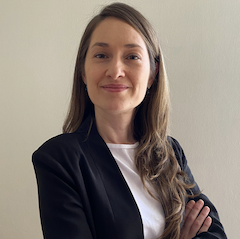
Marcela Sjöberg Herrera
PUC, Chile
Instructors and Teaching Assistants
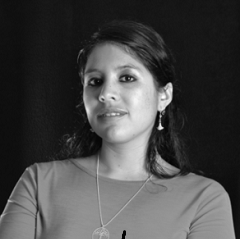
Alejandra Medina Rivera
LIIGH, Mexico

Alejandro Montecinos
PUC, Chile

Ana Betty Villaseñor Altamirano
Brigham & Women's Hospital, USA
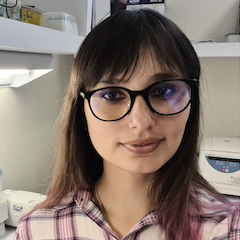
Daniela Robles Espinoza
LIIGH, Mexico

Eric Dawson
NVIDIA, USA
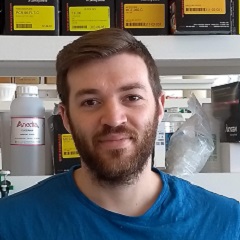
Martín García Solá
UBA, Argentina

Patricia Basurto Lozarda
LIIGH, Mexico
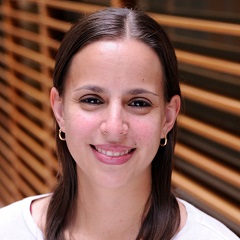
Ximena Ibarra Soria
GSK, UK
Keynote Speakers
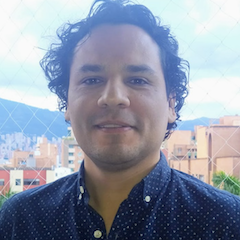
Yesid Cuesta Astroz
Colombian Institute of Tropical Medicine (ICMT), Colombia
Organisers - Wellcome Connecting Science
Alice Matimba – Head of Courses & Global Training
Isabela Malta – Global Training Assistant Manager
Martin Aslett – Information Technology Manager
Nicola Stevens – Courses & Events Organiser
How to apply
Prerequisites
This course is open to applicants from Latin America and the Caribbean. Applicants should be postdoctoral scientists, senior PhD students, junior faculty members or clinicians/healthcare professionals actively engaged in or soon to commence research involving next generation sequencing data analysis. The course will be taught in English with language support from instructors.
*Please note: The practical sessions will be taught exclusively through Unix/Linux. Therefore, participants are required to have some familiarity with the Linux operating system. This will be essential for participants to fully benefit from the course. There are numerous online introductory tutorials to the UNIX/Linux operating system and command line, including:
http://www.ee.surrey.ac.uk/Teaching/Unix
http://swcarpentry.github.io/shell-novice/
How to Apply
Please click the Apply button above to begin the online application process. Places are limited and will be awarded on merit. If you have any problems with the online application process, please contact us.
Please note: Applications must be supported by a recommendation from a scientific or clinical sponsor (e.g. supervisor, line manager or head of department). A request for a supporting statement will be sent to your nominated sponsor automatically during the application process. Applicants must ensure that their sponsor provides this supporting statement by the application deadline. Applications without a supporting statement cannot be considered.
Cost
Cost
The course is subsidised by Wellcome Genome Campus Advanced Courses and Scientific Conferences and is free to attend.
Bursaries
A limited number of bursaries are available for each course. These are awarded on merit to cover travel, accommodation and sustenance.
Bursaries can be applied for as part of the course application form. Applicants will be notified of a bursary award along with their place on the course, usually within one month of the application deadline. The decision of the selection committee is final.
Please note that both the applicant and sponsor are required to provide a justification for the bursary as part of the application.
Accommodation services phishing scam – please be vigilant. More information.
Testimonials
Feedback from the 2019 Overseas NGS Bioinformatics courses:
“I appreciate the excellent the organizers and instructors, and I will recommend this course because I think that it applied a excellent method of teaching, which is learning by doing”.
“I thank you for being selected for the course and have the opportunity to learn about the NGS bioinformatics analysis and meet people from all over Latin America who work in the same area as me”.
“I have benefitted tremendously from this course. I am now able to perform some bioinformatics analyses on my sequencing reads and also provide some basic level of guidance to my colleagues”.
“The first day of networking and getting to know everyone was very helpful in breaking
the ice and getting comfortable”.
“I definitely enjoyed the real hands-on practical work, with necessary and sufficient time allocated
for it, and that we had more than enough instructors that could assist us”.
“The best thing about this course was focus given to practicals, the experience and knowledge of
the instructors, and the number and diversity of instructors”.

